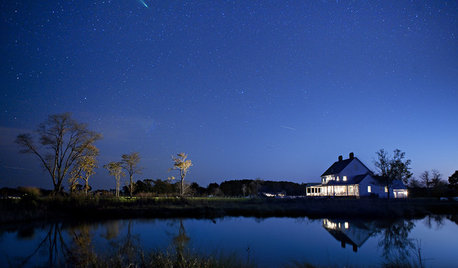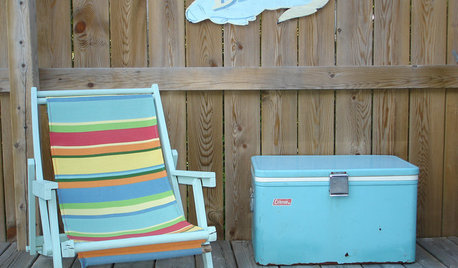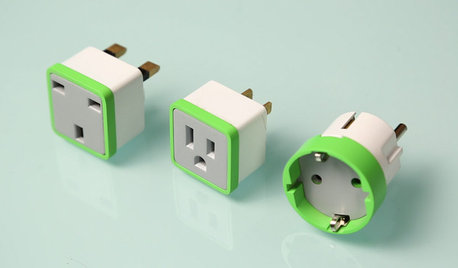Constantly mispronounced words
dido1
12 years ago
Related Stories

MOST POPULARThree Magic Words for a Clean Home and a Better Life
Not a natural tidying and organizing whiz? Take hope in one short phrase that can change your life forever
Full Story
HOUSEKEEPINGThree More Magic Words to Help the Housekeeping Get Done
As a follow-up to "How about now?" these three words can help you check more chores off your list
Full Story
Honoring Martin Luther King, Jr. — In His Words, In Our Homes
The legendary leader’s wisdom is as relevant today as ever, in all aspects of our lives
Full Story
LIFELate Again? Eliminate the Things Holding You Up in the Morning
If you find yourself constantly running late for appointments, work and get-togethers, these tips could help
Full Story
COFFEE WITH AN ARCHITECTAn Architect in Search of a Tag Line
One man attempts to sum up his firm’s philosophy in a simple phrase. It doesn’t go well
Full Story
FUN HOUZZDon’t Be a Stickybeak — and Other Home-Related Lingo From Abroad
Need to hire a contractor or buy a certain piece of furniture in the U.K. or Australia? Keep this guide at hand
Full Story
KITCHEN DESIGNThe Cure for Houzz Envy: Kitchen Touches Anyone Can Do
Take your kitchen up a notch even if it will never reach top-of-the-line, with these cheap and easy decorating ideas
Full Story
HOME TECHPlug Into Home Power Monitors That Pay for Themselves
Stop throwing away money on wasted electricity with help from new monitors that work with your phone or computer
Full Story
LOFTSMy Houzz: Comfortable Chic in an Open Dallas Loft
Dotted with creative projects, repurposed props and plush fabrics, a designer's loft is a most fashionable canvas for experimenting
Full Story




Kath
mudlady_gw
Related Discussions
Tomato most likely to be mis-pronounced
Q
upstairs neighbor constantly fighting!!!
Q
Friend constantly bragging about 20 mo old
Q
Mispronounced words
Q
lemonhead101
friedag
veer
friedag
veer
friedag
mudlady_gw
carolyn_ky
friedag
Kath
friedag
Kath
J C
veer
carolyn_ky
annpan
friedag
Kath
veer
rosefolly
woodnymph2_gw
friedag
rosefolly
friedag
veer
rosefolly
friedag
carolyn_ky
rosefolly
lydia_katznflowers
woodnymph2_gw
veer
lydia_katznflowers
J C
woodnymph2_gw
carolyn_ky
friedag
rosefolly
friedag
mariannese
woodnymph2_gw
mudlady_gw
rosefolly
woodnymph2_gw
mariannese
friedag
leel
woodnymph2_gw